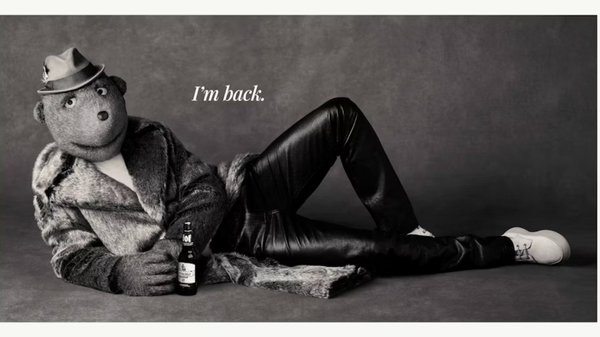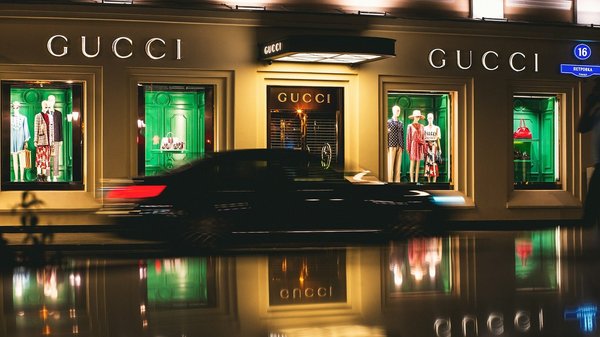In tough times, brands should go The Full Monty /
Societal angst and meagre marketing budgets should not stop brands from being playful, argues Lucky Generals' head of special ops, Paul Mallon.
Several men stand in an unemployment line looking pretty bloody sad.
They’re wearing 90s tracksuits and knock-off jackets.
Some are reading the news; others have that desolate, world-weary stare going on.
It’s a depressing state of affairs against a backdrop of redundancies, strikes, body-image issues, and bitter working-class confrontation.
Then some music kicks in.
Turns out the lads are would-be strippers who can’t resist jiggling to a bit of Hot Stuff.
It’s 1997 and, of course, one of the famous scenes from The Full Monty.
There’s little debate that it’s a British comedy classic. But it was set against some of the aforementioned deadly-serious subject matter.
But there is a lesson there amongst the naked bodies and conveniently placed hats. Dark times do not mean no laughter.
The other thing about The Full Monty is that it was made for peanuts, something like £3m, and went on to gross more than £250m at the box office.
So it’s not new news that taboo subjects and tension often lead to great comedy. But it seems like these days we’re getting a lot of taboo and tension, just without the comedy.
Paul Mallon, Lucky General
Yes, the world has gone to shit. We know this bit.
People are pissed off. Rightly.
Brands are even more scared of pissing off those people.
CMOs, clinging on for dear life, also have less budget, and staff, so they need to make that budget work harder.
All of these aspects hit not just a brand’s confidence to do bold things, but also very fundamental questions like: how on Earth can I justify a chunky marketing activation when I’ve just let go 40% of my team? Or slashed 20% of my budget? How can we be seen to be looking like we’re having fun when we’re supposed to be boarded up?
Well, first up – if you’ve got the budget, spend it (says the guy from an agency). But seriously, make hay when the sun isn’t shining because your brand will benefit from that excess share of voice. It’s one thing halting advertising during Covid when it seems inappropriate, but quite the other to pull down the shutters when you don’t have to. It’s absolutely okay to have fun.
Second thing is that playfulness in advertising can be done with constrained budgets. Specifically, playfulness in the area of what we call ‘Special Ops’ at Lucky Generals, or elsewhere ‘guerrilla marketing’, ‘non-traditional’, ‘ambient’ – or whatever the 2023 term is going to be – can be done really well on a budget. Otherwise it can look like overloaded, shiny, over-cooked advertising. And consumers might not buy it. A bit of charm goes a long way in executions. Jeff Bezos became a behemoth with a principle along the lines of: ‘Constraints breed resourcefulness, self-sufficiency and invention.’
For around 10 years, I couldn’t get fired from Paddy Power, no matter how hard I tried. It turns out that consumers (especially that crucial ‘silent majority’) liked a brand being mischievous, and as long as there’s a solid dollop of strategy, due diligence (eg, has it been done before? Is it achievable in reality and on budget? Have you done a review of competitor activity?) and legal arse-covering, you’re usually into good territory.

Let’s face it, consumers can be evasive things. The potential is there right now to grab these folks by surprise, raise a few eyebrows and some giggles (not guffaws) because this feels like one of those cultural windows where other brands might be going to ground a bit more and ducking for cover.
Humour plus opportunity (and even a constrained budget) are brilliant bedfellows because laughter is not just scientifically proven to be good medicine, the brainy folks at System1 can go a little further.
‘We’re living through a period very much like the Reformation,’ says System1’s chief innovation officer, Orlando Wood. (Reformation? Hang on, Orlando, I’m going to need a stronger drink.)
‘When humour disappears from culture (and Google Trends suggests it is) and from advertising (as System1’s data shows) we know something is wrong in society. If humour has a social benefit, it’s to poke fun at rigidity – to keep us flexible. Humour gives us a sense of perspective, it broadens our attention. And it’s in dark times that humour is all the more needed. It’s how we cope.
‘Advertising has become very “left brained”. Lots of short-sharp cuts, words on the screen, it looks rather self-conscious, in a rather desperate “look at me” kind of way. We seem to be forgetting how to make advertising that captures broad-beam attention with wit and charm,’ he says.
‘Our attention has narrowed in the digital age making us more goal-orientated, more literal, less nuanced, and when we lose our broad-beam attention, we also become fearful and aggressive – a bit like a dog wearing a veterinary cone. This is because the narrowing of attention brings with it the left brain’s habits of thinking and preferences. But it’s the right hemisphere that tells the difference between a joke and a lie.
‘There are some brands getting it right, however. Yorkshire Tea is a good example – using comedy of exaggeration brilliantly, taking the idea of “where things are done proper” to its ultimate conclusion and with it creating a long-running “fluent device”. They’re showing, by using great talent and celebrity, that self-deprecation and self-awareness can go a long way. There’s a self-awareness to these ads – they are like humorous sketches – and there’s a clear determination on the brand’s part that it’s going to have some fun with it.’
(Note: unprompted reference to Yorkshire Tea who are a long-time Lucky Generals client)
Back to business. A few years after The Full Monty was made, lead actor Robert Carlyle revealed he thought the movie was, in fact, not very good. He was surprised at its success after what had been a difficult shoot for him, bless, which included a fallout with the director.
Maybe the bold Robert was blinkered by his more serious, immersive style of acting because those precious Full Monty raw materials — some balls, naked ambition and a bit of lo-fi, roguish charm — go a helluva long way, whatever your budget.
Want more of the same? /
We don’t just write about best-in-class campaigns, interviews and trends. Our Members also receive access to briefings, online training, webinars, live events and much more.







